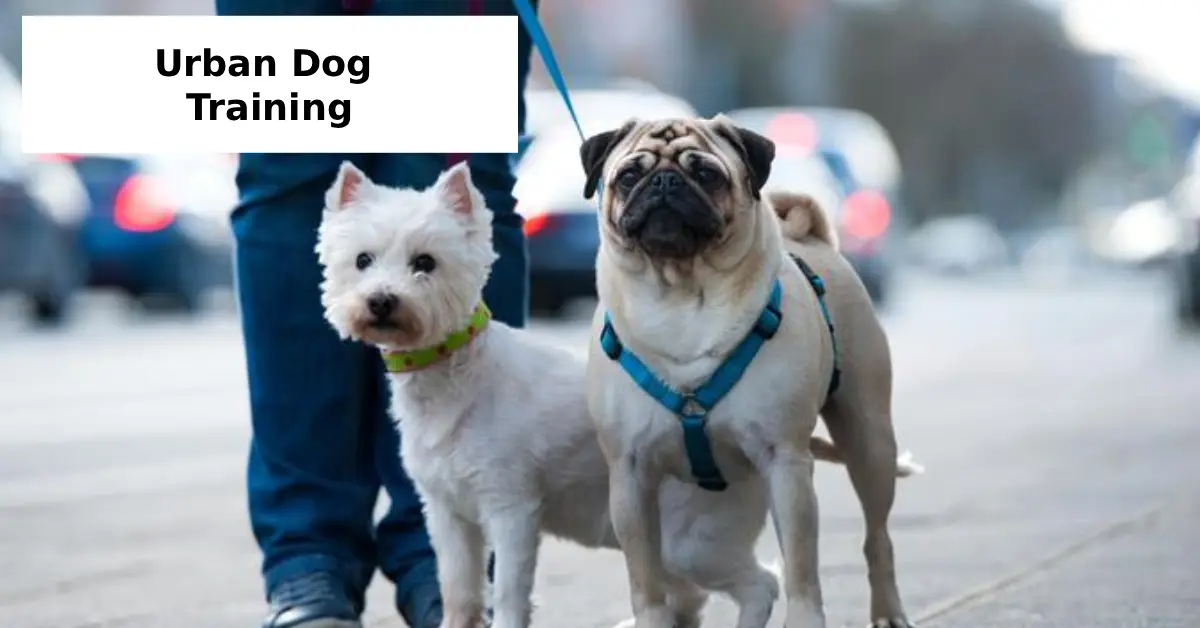Urban dog training is more than just teaching commands; it’s a vital component of ensuring your furry friend’s happiness, safety, and quality of life in fast-paced city environments. For busy professionals living in cities, families with children in urban areas, and new pet owners in apartments or condos, addressing the unique challenges of city life for dogs requires specialized techniques and a thoughtful approach. As cities grow busier, so do the demands on our canine companions to adapt, behave, and thrive in crowded, noisy, and often unpredictable surroundings.
What Is Urban Dog Training?
Urban dog training focuses on preparing dogs to handle the distinct situations and stressors encountered in city environments. It goes beyond basic obedience by including exposure to city sounds, crowded sidewalks, busy parks, public transportation, and more. For city dog trainers, the main goals are building confidence, adaptability, and positive social behavior in dogs so they can comfortably accompany their owners anywhere within the city.
The Unique Challenges of City Dogs
City dogs face hurdles distinct from their rural or suburban counterparts:
- Constant noise pollution (sirens, honking, construction)
- Limited green spaces and exercise areas
- Crowded public areas with people, dogs, and distractions
- Increased social interaction risks, including disease and conflict
- Small living spaces that can lead to boredom or frustration
These challenges make urban dog training not just recommended—but essential.
Benefits of Urban Dog Training
1. Adapting to Urban Distractions
Busy city streets can overwhelm dogs. Urban dog training equips them to focus and remain calm, even amid honking cars, bustling crowds, and the chaos of everyday city life. This adaptability is crucial for pet parents facing leash or behavioral issues and residents with high-energy or working breeds.
2. Curbing Behavioral Problems
Without proper guidance, dogs may develop unwanted behaviors—barking excessively, leash reactivity, fearfulness, or even aggression. Urban dog training, especially when working with a dog behaviorist near me or investing in in home dog training, incorporates evidence-based approaches that redirect these behaviors before they escalate. Early intervention is especially helpful for first-time urban dog owners and owners with reactive or aggressive dogs.
3. Ensuring Safety on City Streets
A well-trained city dog obeys commands like “stop,” “come,” and “leave it”—crucial for their safety amid traffic or crowds. Obedience training for dogs minimizes accident risks, giving busy owners peace of mind during every walk and outing.
4. Boosting Confidence Through Socialization
Dog socialization classes, puppy training near me, and doggy daycares expose pets to new people, animals, and scenarios. This regular exposure helps city dogs develop confidence, which is vital for older adults adopting rescue dogs and families raising pups in urban homes.
Expert-Led Techniques for Urban Dog Training
- Leash Training for Dogs: Mastering leash manners is a top priority for any city dog trainer. Loose-leash walking prevents pulling, lunging, or unpredictable behavior in high-traffic areas, benefiting owners seeking advanced training or those facing leash issues.
- Desensitization: Gradual exposure to city sounds and environments helps dogs overcome fears or anxieties, making them calmer on busy streets. Techniques from fearful dog training can also help particularly nervous pets.
- Reactive Dog Training: Professional trainers design sessions that teach dogs to remain neutral and responsive around triggers—vital for owners with reactive or aggressive dogs.
- Personalized Sessions: In home dog training and one-on-one city walks provide tailored guidance for people seeking personalized training sessions.
Who Benefits from Urban Dog Training?
Urban dog training programs are ideal for:
- Busy professionals living in cities who want a well-mannered companion
- Families with children in urban areas seeking safe, reliable dogs
- New pet owners in apartments or condos who need guidance and routine
- Older adults adopting rescue dogs adjusting to a new environment
- Dog enthusiasts seeking advanced training for challenges unique to city life
- Owners with reactive or aggressive dogs needing specialized support
- Residents with high-energy or working breeds requiring structured outlets
- Pet parents facing leash or behavioral issues on city streets
- First-time urban dog owners learning the ropes
- People seeking in-home or personalized training sessions
Choosing the Right Urban Dog Training Resources
“Dog Training Near Me” — Making the Right Choice
Consider these options for city-focused dog training:
- Local city dog trainer: Highly versed in city environments, public behavior, and urban leash manners.
- Dog behaviorist near me: Ideal for advanced behavioral support and aggressive dog training.
- Dog socialization classes and puppy training near me: Help dogs become confident and relaxed in a structured, group setting.
- In home dog training: Perfect for residents in high-rises, small apartments, or those needing one-on-one help.
Tips for Success in Urban Dog Training
- Stay consistent: Short, daily sessions reinforce good habits and build trust.
- Use positive reinforcement: Reward desired behaviors to encourage repeat performance.
- Expose your dog gradually: Introduce stimuli like traffic, elevators, and city-heavy areas step by step.
- Keep sessions fun and varied: Use parks, sidewalks, and different parts of the city to teach adaptability.
- Choose training gear wisely: Harnesses, clickers, and treats keep dogs motivated and responsive.
Overcoming Common Urban Dog Issues
- Aggressiveness or reactivity: Seek specialized reactive dog training or aggressive dog training programs.
- Fearful behaviors: Apply strategies from fearful dog training, focusing on positive reinforcement and gradual exposure.
- Overstimulation: Create home spaces for your dog to relax and decompress from city sounds and activities.
- Boredom and energy: Use safe dog parks and structured enrichment activities to keep minds and bodies engaged.
Conclusion
Urban dog training is not a luxury—it’s a necessity for every city pet. By investing in professional urban dog training, owners empower their dogs to thrive, stay safe, and enjoy city life to the fullest. Whether you’re searching for puppy training near me, need advanced fearful dog training strategies, or want to connect with a city dog trainer, the investment pays lifelong dividends in happiness, safety, and harmony for both you and your furry companion.
Urban living may come with its hurdles, but with the right dog training resources, every city pet can flourish—turning noise, bustle, and challenges into opportunities for bonding, learning, and adventure together.






1 thought on “Why Urban Dog Training Is Essential for City Pets”